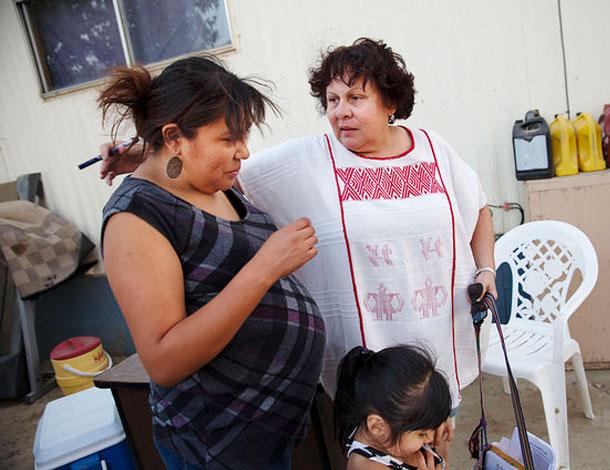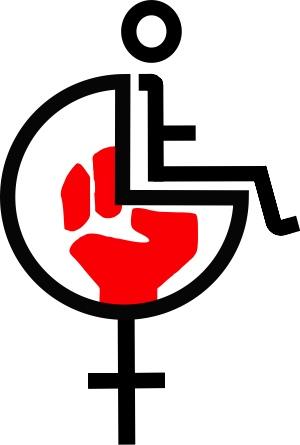The recent Zika outbreak in Latin America and the Caribbean has highlighted some areas where different sectors of the global feminist movement need to deepen reflection and dialogue about how to develop tactics and strategies for moving our collective rights and justice agendas forward.

Our upcoming AWID International Forum in Brazil, where the Zika outbreak has had a major impact, is one opportunity to have that dialogue.
We need an intersectional dialogue and analysis
The Zika outbreak brings into focus the diverse struggles of activists within our overall movement who are working on reproductive and abortion rights, disability rights, and economic and racial equality, especially given that the most serious consequences of Zika have largely affected Black women and children in some of the poorest communities in northeast Brazil, where there is little access to reproductive services.
Brazilian activists are actively discussing the intersections of these issues, and recently, at the Commission on the Status of Women (CSW) convening in New York, international activists with different perspectives but a common goal of advancing an intersectional human rights response also came together. A number of organizations have since been in consultation and are working towards a joint statement.
The push to broaden reproductive rights
Zika can lead to significant physical and psychological health consequences for pregnant women – given increased risks of miscarriage, stillbirth, and other pregnancy-related complications – and can also lead to serious health consequences for infants whose mothers contracted the virus during pregnancy.
Given this reality, along with the infeasibility of governmental recommendations to women to “avoid getting pregnant” until Zika is eradicated, many reproductive and abortion rights advocates have seized on the opportunity to make a renewed push for abortion rights and access to sexual health and reproductive services for women in countries affected by Zika.
Clearly, denying women the ability to prevent unwanted/unplanned pregnancies always puts an unjust burden on women; the Zika virus and its health consequences increase this burden.
The same countries that restrict women's ability to control reproduction and that criminalize abortion, also offer little or no access to adequate resources, support and services to families --mostly women caretakers-- who need access to services for children with disabilities.
Thinking about tactics

Framing the argument in terms of serious health consequences on children of pregnant women affected by Zika may be an effective tactic to persuade conservative law-makers – who under other circumstances would never support a broadening of abortion rights – to grant greater legal access to abortion during the Zika epidemic. This may then open the door to greater access down the road.
Using a disease outbreak as a wedge to ‘open the door’ to change laws that violate women’s SRHR is not new, and not without its own logic. It may be worth remembering that in the United States, it was a 1960’s rubella outbreak that brought abortion to national attention, and paved the way to Roe v. Wade.
Unintended consequences
What has been less discussed within the feminist movement, however, are some of the possible unintended consequences of this strategy to expand abortion rights.
Most of us can probably agree that a woman should have the right to choose to end a pregnancy or not, based on her own analysis of what she needs and wants for her own life.
However, there is a risk that the language and arguments used to advance abortion rights in this context can further stigmatize disability, or potential disability, deepening the prejudice that having a disability is something that should be avoided at all cost.
The complexity of stigma
For those women who choose not to abort in these types of cases and for their children, the challenge of barriers brought on by prejudice and stigma about disability can be just as daunting as the challenge of getting adequate access to support and services. In many of the countries affected by Zika, people with disabilities are disproportionately poorer and affected by multiple gaps in national laws and policies.
In fact, the way that prejudice and stigma play into the question of choice is complex.
Difficult discussions
None of these discussions are easy because they touch on what are often deeply personal and sensitive issues. But we need an open, reflective dialogue about the feminist concepts of rights and choice in the context of ending pregnancies, and the ways they are being used and misused in different contexts.
It's vital that we think through how women's rights and gender justice movements can take advantage of political opportunities to open doors without sacrificing our most basic principles of intersectionality and inclusivity.
Opening the dialogue
If the current Zika outbreak has opened another door to push forward the sexual and reproductive health and rights of women in the Americas, that door must be made wide enough to support the right of all women to choose to keep or end their pregnancies based on their own needs, and include demands for resources and support, respect and valuing of all babies and children, and all adults.
As we work to be true to the values of justice and inclusivity that define our movement, let's continue to think hard about how to not only open the door, but how to open up our dialogue.
We look forward to your comments below, and to continuing the dialogue in these next few months, and in September at the Forum in Brazil.
*with generous feedback from our colleagues from the Disability Rights Fund (DRF) and from AWID’s disability rights advisory group. Please stay tuned for a follow-up blog from a disability rights perspective by Diana Samarasan of DRF.
